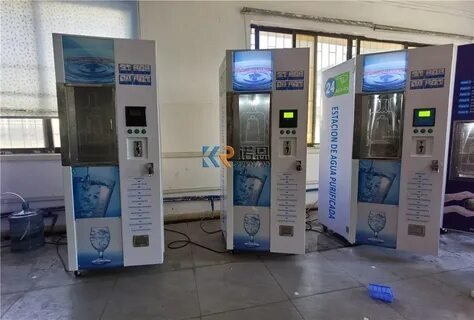The smart manufacturing market has been revolutionizing industrial processes, creating new efficiencies and opportunities across various sectors. As of 2024, the market value of smart manufacturing has reached approximately USD 296.44 billion, and it is poised for substantial growth, with a forecasted compound annual growth rate (CAGR) of 12% from 2025 to 2034. By 2034, the smart manufacturing market is expected to attain nearly USD 821.11 billion. This surge is being driven by the rapid advancements in IoT (Internet of Things), artificial intelligence (AI), and automation technologies that are transforming manufacturing operations globally.
In this blog, we’ll dive into the smart manufacturing market’s overview, size, trends, growth factors, analysis, and forecast, while also reviewing the competitive landscape that is shaping this evolving industry.
Smart Manufacturing Market Overview
Smart manufacturing refers to the use of advanced technologies such as IoT, AI, robotics, and data analytics to improve manufacturing processes. These technologies enable manufacturers to monitor, analyze, and control operations in real-time, improving efficiency, productivity, and product quality. The integration of digital tools in production facilities also enhances predictive maintenance, reduces operational downtime, and supports the creation of smarter, more flexible manufacturing environments.
The smart manufacturing ecosystem encompasses various technologies, including cyber-physical systems (CPS), machine learning, industrial IoT devices, autonomous robots, and big data analytics. The objective is to create intelligent, connected factories that can adapt to changing demands, optimize processes, and deliver better outcomes.
Smart Manufacturing Market Size
In 2024, the global smart manufacturing market was valued at approximately USD 296.44 billion. This market is expected to experience rapid growth over the next decade, with a projected CAGR of 12% from 2025 to 2034. By 2034, the smart manufacturing market is expected to reach a value of around USD 821.11 billion.
This substantial growth is largely driven by the increasing adoption of automation and digital technologies by manufacturers across industries. As the demand for high-efficiency, low-cost, and sustainable manufacturing processes rises, smart manufacturing technologies are becoming a priority for businesses seeking to stay competitive.
Smart Manufacturing Market Trends
Several key trends are shaping the smart manufacturing market:
Industrial IoT (IIoT) Integration: The Industrial Internet of Things (IIoT) is one of the primary drivers of smart manufacturing. By connecting machines and equipment to the internet, manufacturers can gather real-time data to optimize production and reduce downtime. IIoT adoption enables predictive maintenance and improves overall equipment effectiveness (OEE).
Artificial Intelligence and Machine Learning: AI and machine learning technologies are being increasingly integrated into manufacturing systems to automate processes, improve decision-making, and enable predictive analytics. These technologies can identify patterns in data and recommend optimizations that were previously impossible to detect.
Automation and Robotics: Automation and robotics are central to smart manufacturing. Advanced robotics are used for precision tasks, material handling, and assembly processes, resulting in increased efficiency and reduced labor costs. The use of autonomous robots is expanding across industries like automotive, electronics, and consumer goods.
Cloud Computing: Cloud-based solutions are becoming essential for managing and analyzing the massive amounts of data generated by smart manufacturing systems. Cloud computing offers flexibility, scalability, and remote access, allowing manufacturers to improve operational efficiency while reducing costs.
Sustainability and Energy Efficiency: Smart manufacturing technologies are helping companies reduce energy consumption and waste. Through advanced monitoring and data analysis, manufacturers can optimize production processes to use fewer resources, leading to cost savings and a smaller environmental footprint.
Edge Computing: Edge computing is enabling real-time processing of data at the location where it’s generated, rather than sending it to a distant data center. This reduces latency and improves decision-making, making it essential for time-sensitive operations in smart manufacturing.
Get a Free Sample Report with Table of Contents
Smart Manufacturing Market Segmentation
Components
Hardware
Software
Services
Technologies
Programmable Logic Controller
Supervisory Controller and Data Acquisition (SCADA)
Enterprise Resource and Planning
Human Machine Interface
Product Lifecycle Management
Manufacturing Execution System
Distributed Control System
3D Printing
Others
End Use
Automotive
Aerospace and Defence
Chemicals and Materials
Healthcare
Food and Beverage
Oil and Gas
Others
Regions
North America
Europe
Asia Pacific
Latin America
Middle East and Africa
Smart Manufacturing Market Growth
The smart manufacturing market is on a growth trajectory driven by several key factors:
Increased Adoption of Automation: Manufacturers are increasingly turning to automation to streamline production processes, reduce human error, and cut labor costs. Automated systems are being used to control and monitor production, while robotics and AI are improving operational efficiency.
Cost Reduction and Efficiency: Smart manufacturing helps businesses lower costs by identifying inefficiencies and streamlining processes. Through real-time data analytics, manufacturers can reduce waste, optimize energy consumption, and improve supply chain management, all contributing to cost reduction.
Consumer Demand for Customization: As consumers demand more customized products, manufacturers are using smart manufacturing techniques to meet these demands. Smart factories equipped with flexible production systems can easily switch between products and adjust production schedules, making them more adaptable to consumer preferences.
Government Support and Industry 4.0: The global push toward Industry 4.0, which focuses on the digital transformation of manufacturing, is accelerating the growth of the smart manufacturing market. Governments worldwide are offering incentives for adopting smart manufacturing solutions to improve economic competitiveness and industrial innovation.
Global Supply Chain Optimization: With globalization and the need for supply chain optimization, smart manufacturing technologies help companies improve inventory management, reduce lead times, and increase production flexibility. These advancements help companies stay competitive in a rapidly changing global market.
Smart Manufacturing Market Analysis
The smart manufacturing market is influenced by various factors such as technological advancements, government policies, and consumer demands. Below are key aspects of the market:
Technological Advancements: The continuous innovation in IoT, AI, robotics, and automation technologies is driving the smart manufacturing market. Companies are investing in cutting-edge technologies to create efficient, cost-effective, and adaptable manufacturing systems.
Market Segmentation: The smart manufacturing market can be segmented by technology (IoT, AI, robotics, etc.), application (automotive, electronics, food & beverage, etc.), and region. The automotive and electronics industries are expected to be major adopters of smart manufacturing technologies due to their need for high precision and automation.
Geographical Insights: North America and Europe have been the early adopters of smart manufacturing technologies, driven by technological advancements and government support for innovation. However, the Asia-Pacific region is expected to experience the highest growth during the forecast period due to the rapid industrialization and manufacturing hub status of countries like China, India, and Japan.
Investment and Funding: There is increasing investment in the development and deployment of smart manufacturing technologies. Companies and governments are funding initiatives to drive innovation and ensure the seamless integration of these technologies into existing production systems.
Smart Manufacturing Market Forecast
The smart manufacturing market is expected to grow at a strong pace from 2025 to 2034, with a projected CAGR of 12%. This growth is expected to be fueled by the increasing demand for automation, AI, and IoT-based solutions to improve efficiency, reduce costs, and meet consumer expectations for high-quality, customizable products.
By 2034, the smart manufacturing market is expected to reach a value of approximately USD 821.11 billion. The adoption of smart technologies is anticipated to continue expanding across industries, with the automotive, electronics, and aerospace sectors leading the way.
Competitor Analysis
Several key players are shaping the smart manufacturing landscape, leading innovation and driving market growth. Notable competitors in the smart manufacturing market include:
ABB Ltd.: ABB is a global leader in industrial automation and robotics. The company’s smart manufacturing solutions focus on energy-efficient, automated, and digitally connected manufacturing processes. ABB’s robotics, AI, and IoT capabilities are widely used in industries such as automotive, electronics, and manufacturing.
Emerson Electric Co.: Emerson provides a range of smart manufacturing solutions, including automation, control systems, and IoT-enabled devices. Their products enable manufacturers to improve efficiency, reduce downtime, and optimize operations.
Rockwell Automation, Inc.: Rockwell Automation specializes in industrial automation and information technology solutions for smart manufacturing. Their products focus on improving productivity and operational efficiency through advanced software, control systems, and connected technologies.
Mitsubishi Electric Corporation: Mitsubishi Electric is a key player in the smart manufacturing space, offering industrial automation, robotics, and control systems. Their products are designed to enhance operational efficiency, reduce costs, and improve production flexibility.
FANUC America Corporation: FANUC is known for its advanced robotics and automation solutions for the manufacturing industry. The company’s robots are widely used in applications such as material handling, assembly, and packaging, making them a vital part of smart manufacturing systems.
Schneider Electric SE: Schneider Electric provides energy-efficient solutions for industrial automation, energy management, and smart manufacturing. Their solutions aim to optimize resource use, improve productivity, and reduce environmental impact in manufacturing operations.
Others: Companies such as Siemens AG, Honeywell International, and Schneider Electric are also making significant contributions to the smart manufacturing market with their automation, robotics, and IoT solutions.
Media Contact:
Company Name: Claight Corporation
Contact Person: Emily Jacks, Business Consultant
Email: sales@expertmarketresearch.com
Toll Free Number: US +1-415-325-5166 | UK +44-702-402-5790
Address: 30 North Gould Street, Sheridan, WY 82801, USA
Website: www.expertmarketresearch.com















Leave a Reply